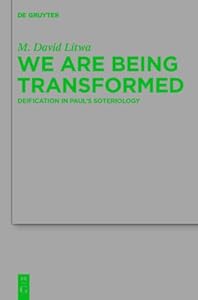Among the faithful of the
Assyrian Church of the East (ACOE) it is well-known fact that their traditional
liturgical language—Syriac—is “the language Jesus spoke.” (Syriac is a dialect of Aramaic, after
all, unlike Greek and Latin.) Among the
faithful of the ACOE it is also a well-known fact that Jesus founded the church
in Osrohene (Edessa) in Syria around the year 30 CE in his correspondence with
King Abgar V Ukama. Well, actually the
church was more formally established when the apostle Addai was sent to Edessa
(either by the apostle Thomas or by Jesus himself) to cure Abgar of his disease
after Jesus had been crucified and resurrected.
At any rate, the ACOE was established by Jesus, through the apostles’
authority, immediately after Jesus’ earthly life. Among the points of pride the faithful of the
ACOE tally to their church’s credit, this is among the most important. Jesus did not correspond with Tiberius
Caesar, nor deliberately send an apostle to Rome; Peter took on the task of
founding the church in Rome. But Jesus
founded the church in Edessa.
Tuesday, October 29, 2013
Sunday, October 20, 2013
Among the Gentiles
Luke Timothy Johnson’s Among
the Gentiles is an illuminating comparative study.
Johnson’s goal is to demonstrate that although Greco-Roman religion and
early Christianity disagreed on many specific beliefs and practices, their ways
of being religious (i.e. their approaches to divine power) were fundamentally
congruous.
In
the first three chapters Johnson addresses the debate to which he hopes to
contribute, the method and perspective he follows, and the model he
employs. Tracing the polemic of
Christianity against “pagan” religion from the first century CE to the present,
Johnson suggests in the first chapter that such debates about the relationship
between the two religious complexes have proven unfruitful and not a little
dissimulating. Chapter two outlines a
fresh approach to the discussion from the field of religious studies. Johnson provides a definition of religious
experience that understands religion as a collection of human responses to what
is perceived as ultimate power (often referred to throughout the book as
“divine dynāmis”), a definition he has also argued for elsewhere.
Thursday, February 14, 2013
Pauline Soteriology: Theosis or Deification (Part II: M. David Litwa)

"Today, biblical scholarship on deification is more or less dominated by theological discourse and presuppositions. In this climate, it is tempting to simply focus on Christian forms of deification when treating Paul. I am convinced, however, that scholars will never understand Paul and deification until they open themselves up to honest historical inquiry about other, larger discourses of deification in the Greco-Roman world. ...If we are going to achieve a truly historical understanding of deification in the Greco-Roman world (including Christian deification), it seems to me that scholars need to be more sympathetic to ancient forms of thought. In modern theology, the very way we think about humans and God(s) tends to preclude deification. ...In this study I try--as best I can--to peer behind centuries of Christian theological discourse about deification. But the road is hard. Some of the texts are scattered and unfamiliar. My argument requires deep and sympathetic listening to Greco-Roman sources and the careful reconstruction of ancient modes of thought. ...The best reader of this study is the one who will bracket later theological distinctions (e.g., the essence/energies distinction, synergy vs. sola gratia, 'natural' vs. adoptive sonship) in an effort to look at the evidence afresh and with an open mind. Every author desires such readers, but the controversial nature of this study requires that I must ask for them" (vii-viii).
Already in the preface to his book M. David Litwa announces the difference between his approach to deification in Paul's soteriology and what he takes as the more common approach to deification in biblical scholarship. Litwa takes a comparative, history of religions approach to the question and deliberately brackets questions raised by later theological discourse in order to understand Paul's language of deification in his historical context. Methodologically, then, Litwa is a child of the Protestant Reformation and Enlightenment every bit as much as was F. C. Baur or Adolf von Harnack, and his study represents the continuing value of historical-critical study of early Christianity. As with the Religionsgeschichtliche Schule Litwa undertakes to explore deification as a soteriological category for Paul not as he was later understood and employed in the Christian doctrine of theosis, but as he might have been understood in the context of the ancient Jewish and Hellenistic world of which he was a part.
Subscribe to:
Comments (Atom)

